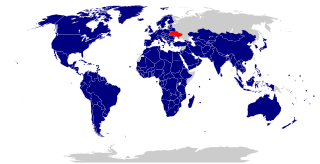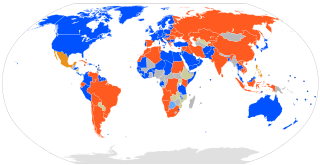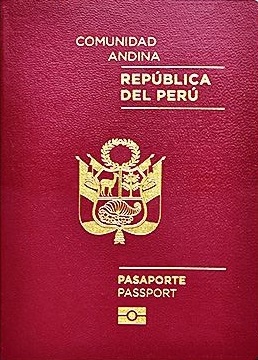Ministry of Europe and Foreign Affairs may refer to:
Ministry of Europe and Foreign Affairs may refer to:

Since its independence, Armenia has maintained a policy of complementarism by trying to have positive and friendly relations with Iran, Russia, and the West, including the United States and the European Union. It has full membership status in a number of international organizations and observer status, etc. in some others. However, the dispute over the Armenian genocide of 1915 and the ongoing Nagorno-Karabakh conflict have created tense relations with two of its immediate neighbors, Azerbaijan and Turkey.

Cyprus is a member of the United Nations along with most of its agencies as well as the Commonwealth of Nations, World Bank, International Monetary Fund and Council of Europe. In addition, the country has signed the General Agreement on Tariffs and Trade (GATT) and the Multilateral Investment Guarantee Agency Agreement (MIGA). Cyprus has been a member of the European Union since 2004 and in the second half of the 2012 it held the Presidency of the Council of the European Union.

Ukraine has formal relations with many nations and in recent decades has been establishing diplomatic relations with an expanding circle of nations. The foreign relations of Ukraine are guided by a number of key priorities outlined in the foreign policy of Ukraine.
Iceland took control of its foreign affairs in 1918 when it became a sovereign country, the Kingdom of Iceland, in a personal union with the King of Denmark. As a fully independent state, Iceland could have joined the League of Nations in 1918, but chose not to do so for cost reasons. It negotiated with Denmark to initially carry out most of its foreign relations, while maintaining full control. Denmark appointed a diplomatic envoy (Ambassador) to Iceland in 1919 and Iceland reciprocated in 1920, opening an Embassy in Copenhagen. Iceland established its own Foreign Service in April 1940 when Denmark became occupied by Nazi Germany and ties between the two countries were severed. The Republic of Iceland was founded in 1944. The Icelandic foreign service grew slowly in the post-WWII period, but increased rapidly after the mid-1990s. Iceland's closest relations are with the Nordic states, the European Union and the United States. Iceland has been a member of the United Nations since 1946. Iceland was a founding member of the World Bank in 1946 and NATO in 1949. In terms of European integration, Iceland was a founding member of the OEEC in 1948 and the Nordic Council in 1952, it joined EFTA in 1970, was a founding member of the CSCE in 1973 and the EEA in 1992 and joined Schengen in 1996.
In many countries, the Ministry of Foreign Affairs is the government department responsible for the state's diplomacy, bilateral, and multilateral relations affairs as well as for providing support for a country's citizens who are abroad. The entity is usually headed by a foreign minister.

The Ministry of Foreign Affairs, European Union and Cooperation (MAEUEC) is a department of the Government of Spain in charge of planning, managing, carrying out and evaluating the country's foreign and international cooperation for development policies, paying special attention to the ones in relation to the European Union and Ibero-America, as well as coordinating and supervising all actions done in this areas by the other Ministries and Public Administrations. Likewise, it is responsible for promoting international economic, cultural and scientific relationships, taking part in the proposal and application of the migration policy, promoting cross-border and interterritorial cooperation, protecting Spaniards abroad and preparing, negotiating and processing the international treaties which Spain is part of.

Visa requirements for Moroccan citizens are administrative entry restrictions by the authorities of other states placed on citizens of Morocco. As of 25 October 2021, Moroccan citizens had visa-free or visa on arrival access to 64 countries and territories, ranking the Moroccan passport 85th in terms of travel freedom according to the Henley Passport Index.

International recognition of Kosovo, since its declaration of independence from Serbia enacted on 17 February 2008, has been mixed, and international governments are divided on the issue.

The Ministry of Foreign Affairs is a department of the Government of Kosovo in charge of foreign relations and the admission of Kosovo into the European Union and North Atlantic Treaty Organization (NATO).
Visa requirements for Yemeni citizens are administrative entry restrictions by the authorities of other states placed on citizens of Yemen. As of 2 July 2019, Yemeni citizens had visa-free or visa on arrival access to 33 countries and territories, ranking the Yemeni passport 104th in terms of travel freedom according to the Henley Passport Index.

Visa requirements for Saudi citizens are administrative entry restrictions by the authorities of other states placed on citizens of Saudi Arabia. As of 2023, Saudi citizens had visa-free or visa on arrival access to 97 countries and territories, ranking the Saudi Arabian passport 50th in terms of travel freedom according to the Global Passport Index.

Visa requirements for Ecuadorian citizens are administrative entry restrictions by the authorities of other states placed on citizens of Ecuador. As of 2 June 2022, Ecuadorian citizens had visa-free or visa on arrival access to 93 countries and territories, ranking the Ecuadorian passport 58th in terms of travel freedom according to the Henley Passport Index.

Visa requirements for Georgian citizens are administrative entry restrictions by the authorities of other states placed on citizens of Georgia. As of 10 January 2023, Georgian citizens had visa-free or visa on arrival access to 116 countries and territories, ranking the Georgian passport 50th in terms of travel freedom according to the Henley Passport Index.

Visa requirements for Peruvian citizens are administrative entry restrictions by the authorities of other states placed on citizens of Peru. As of March 15, 2022, Peruvian citizens had visa-free or visa on arrival access to 135 countries and territories, ranking the Peruvian passport 36th overall and 8th in the American continent in terms of world travel freedom according to the Henley Passport Index.
Visa requirements for Mauritian citizens are administrative entry restrictions by the authorities of other states placed on citizens of Mauritius. As of 5 January 2021, Mauritian citizens had visa-free or visa on arrival access to 146 countries and territories, ranking the Mauritian passport 31st overall and 2nd in Africa in terms of travel freedom according to the Henley Passport Index. As of April 2019, Brunei, Grenada, Seychelles and Mauritius are the only countries whose citizens may travel without a visa to China, Russia, Schengen Area and the United Kingdom.
Visa requirements for Nigerian citizens are administrative entry restrictions imposed by the authorities of other states on citizens of Nigeria.
Ministry of Foreign and European Affairs may refer to the following Foreign Ministries:

Visa requirements for East Timorese citizens are administrative entry restrictions by the authorities of other states placed on citizens of East Timor. As of 2 July 2019, East Timorese citizens had visa-free or visa on arrival access to 94 countries and territories, ranking the East Timorese passport 56th in terms of travel freedom according to the Henley Passport Index.

Visa requirements for Myanmar citizens are administrative entry restrictions by the authorities of other states placed on citizens of Myanmar. As of 28 September 2019, Myanmar citizens had visa-free or visa on arrival access to 46 countries and territories, ranking the Myanmar passport 95th in terms of travel freedom according to the Henley Passport Index. Myanmar is also a part of ASEAN and has visa-free access to all other ASEAN states besides Malaysia.
Minister for European Affairs or Minister of European Affairs may refer to: